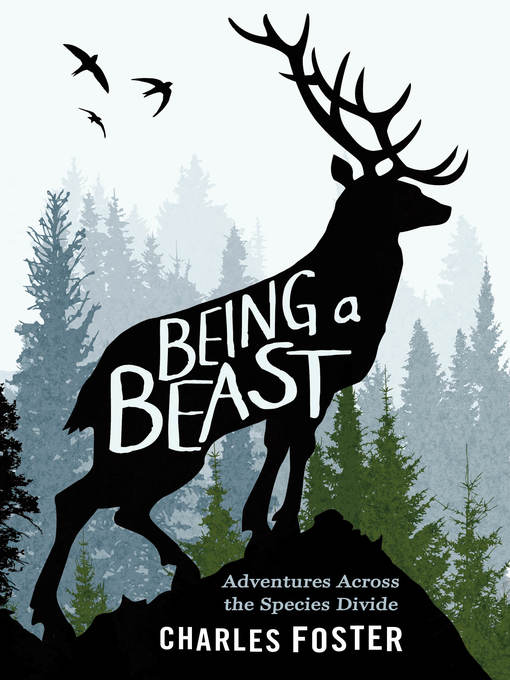
Being a Beast
Adventures Across the Species Divide
کتاب های مرتبط
- اطلاعات
- نقد و بررسی
- دیدگاه کاربران
نقد و بررسی

May 16, 2016
"Nature writing has generally been about humans striding colonially around," writes Foster, a qualified veterinarian and research fellow at Oxford University. He instead opts for the four-legged approach, writing about nature through his experience mimicking the lifestyles of badgers, otters, foxes, red deer, and swifts. His book is an extraordinary account of his time spent traversing the forest near his home, digging into the earth to build an underground sett to live in as a badger (which also involved eating lots of earthworms), enlisting six children to help replicate the otter's use of dung to mark territory (and the otter's extraordinary metabolic rate), and substituting himself in lieu of a deer being hunted by hounds. In lesser hands this could come off as trite or patronizing, but Foster is quick to acknowledge his shortcomings and errors in perspective regarding his project, and he projects a healthy sense of humor; his account of encountering a police officer while attempting to recreate a fox's experience by sleeping next to a busy road is particularly rich. This approach, along with his willingness to address and avoid the temptation for anthropomorphism, makes his book interesting and informative.

Starred review from May 15, 2016
In which an English author, tired of the high street, takes to the fens and burrows to learn how animals live.What does an otter do? One imagines a life of lolling in a sparkling tidal pool, nibbling on salmon. Is there more to it? Indeed, writes Oxford ethicist and veterinarian Foster. For one thing, there's a matter of negotiating rivers down to the sea, "Ruskin on acid; all hanging greenery; soft focus from the spray--it's too much." Clearly, this isn't your grandmother's Ring of Bright Water but instead a daringly imaginative project to see the world from the viewpoints of various animals that wouldn't be out of place in The Wind in the Willows: badger, otter, swift, fox, red deer. Their world is fraught with danger, not least because of the too-insistent, too-impingent presence of our kind. The project is daring precisely because it courts the two sins of nature writing, anthropomorphism and anthropocentrism, the latter describing the world as it appears to humans, "perhaps commercially shrewd," Foster grumps, but "rather dull," and the former depicting the animal world as being a mirror of the human. It is not: Foster, in inhabiting that world, attempts to get at its essential alien nature, whether routing through badger tunnels whose geography is determined by where the bones of badgers past and passed-away lie or racing against dogs in the guise of a vulpine: "Apart from swifts, foxes were the most obviously alive things I knew." There's not an ounce of sentimentality in any of it, but instead good science and hard-nosed thought. Furthermore, Foster has the gift of poetry, and he closes with a meditation on what knowing about the animal orders and the natural world can mean to humans: "If we live in a wood," he writes, "we acquire the accents of the trees." A splendid, vivid contribution to the literature of nature.
COPYRIGHT(2016) Kirkus Reviews, ALL RIGHTS RESERVED.

May 15, 2016
While myriad scientists and naturalists have penned books about animals after studying them in their natural habitats, Foster (medical law & ethics, Oxford Univ.) writes from their points of view after attempting to approximate their lives in the wild. He believes people cannot truly know animals by watching them, but that we must see the world as they do. The author lived as a badger in a makeshift den, eating worms and observing the environment by scent; swam as an otter, trying to catch fish with his mouth; adopted the habits of an urban fox, hiding in backyards, then foraging for food in the garbage; and followed the migrations of swifts and imagined how it must feel to live in the air. Woven through the lyrical narrative are neuroscience, facts about the creatures, and philosophy. VERDICT This book's fascinating premise, with its unique perspective of how animals perceive their surroundings, will be of interest to scientists, naturalists, and those who enjoy reading about natural history.--Sue O'Brien, Downers Grove P.L., IL
Copyright 2016 Library Journal, LLC Used with permission.

Starred review from May 15, 2016
I want to know what it is like to be a wild thing, explains Foster (Tracking the Ark of the Covenant, 2013), a British professor of medical law and ethics as well as a veterinarian, at the start of this fascinating exploration. He describes the physiology and anatomy of five different speciesbadger, red deer, urban red fox, otter, and swiftand tries to understand their experiences by living their lives. His attempts to actually be a beast make this a different sort of wildlife book. Foster lived in a hole and ate worms to approximate the life of a badger. As an otter, he traveled alone between streams and stayed in the water turning over stones in search of food. Joining urban foxes meant being crepuscular, sleeping next to freeways, and rummaging through trash cans. Learning what it was like to be a prey species as a red deer meant being chased by staghounds. The most difficult effort was to live the life of a swift, as these birds spend the vast majority of their lives airborne, so instead he followed their migration. Ultimately, Foster found reciprocity in his unusual and daring immersion in nature, feeling that he now knows the essence of animals' lives and is somehow newly known in return.(Reprinted with permission of Booklist, copyright 2016, American Library Association.)

























دیدگاه کاربران